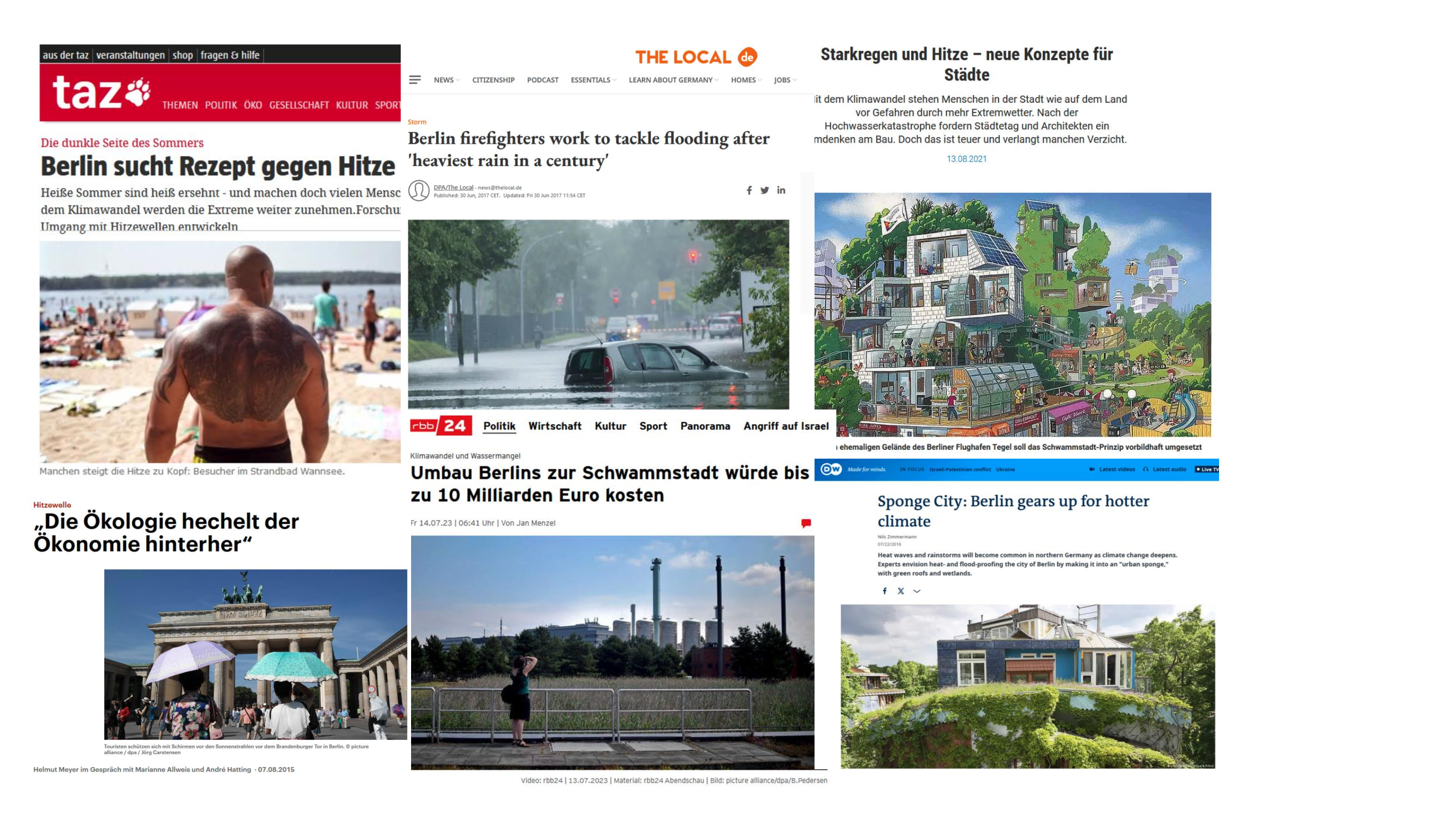With global climate change in focus and increasing urban population trends, it is vital to reduce the intensity of urban heat island and adapt to the changing climate in cities. Urban green infrastructure (UGI) is a well-known and promising solution that can provide numerous adaptive measures to design and develop climate-resilient cities.
This course will investigate the relationship of urban green infrastructures and the various urban climate aspects like temperature, radiations, winds, precipitation, humidity etc. that can serve for cooling cities and also contribute in coping with others challenges in cities such as air pollution or water management. Topics of the seminar include:
- green cooling mechanisms at from micro to mesoscale,
- different types of green infrastructure such as parks, city trees, roof and façade greening,
- combinations with blue infrastructure under the focus of sponge cities,
- recommendations for optimizing green spaces in landscape architecture and planning
- techniques to monitor the effectivity of green infrastructure as well as
- limits and trade-offs of green infrastructure for cooling cities
After participating in this course, the students will be able to explain the mechanisms of local cooling and influencing factors and will be able to describe the effectivity of different urban green infrastructure types in order to reduce the urban heat island. Moreover, they will be able to critically assess the effectivity of urban green space solution and understand synergies and trade-offs.
In this seminar, each lecture will provide a brief overview of a key aspect related to green cities with presentations, group activities and discussions of current research studies. The study achievements will be 2-3 short presentations and the exams achievement will be an assignment about a specific key aspect of green infrastructure.
Computational models are an essential tool to understand, analyse and predict the local and regional climate and to facilitate climate change adaptation and climate-resilient planning and design. This seminar provides an short overview of a variety of different models that are used to analyse the past, current and future state of the near-surface atmospheric conditions. The seminar focuses on outdoor thermal comfort (OTC) modelling.
For one or more specific planning sites, we will examine the current urban and open space planning design in terms of thermal comfort and adaptation to heat in the outdoor space. For this purpose, we will carry out our own modelling with Envi-met and follow the process of setting up the model area and analysing the data. The results of the modelling, including the biometeorological indices, will be analysed with regard to the need for improvement. In an impromptu exercise, optimised designs for the planning area are developed and modelled again.
After successfully participating in the course, the students will be able to describe different types of models ranging from micro- to regional scale and from statistical to numerical for various applied research questions. Furthermore, they will be able to apply and run a selected user-friendly outdoor thermal comfort model for a test case.
Prior knowledge of environmental meteorology, urban climatology and/or data processing is preferable but not necessary.
The combined lecture and seminar usually consists of basic input, student presentations and/or group discussions followed by a hands-on exercise. Study achievements include solving exercise tasks in the seminar and short presentations in the lecture. Exams achievement comprising a presentation (50%) and a seminar assignment (50%).

